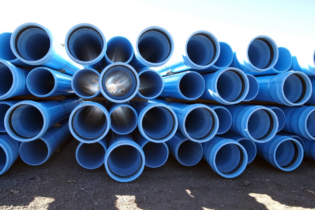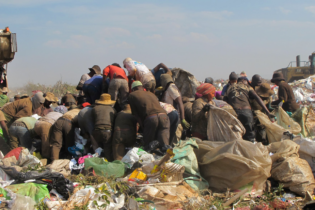With the announcement of a likely carbon tax to come into effect in the 2013/2014 tax year during this year’s Budget Speech, South African business has expressed concern and dissatisfaction. However, Finance Minister Pravin Gordhan indicated that there would be further opportunity for business to comment with the release of a discussion document by Treasury.
Currently, the proposal is for a tax rate of R75 per tonne of carbon dioxide emitted with this rate to increase over time. Research performed by Trucost, a company which assists organisations to measure and manage environmental impacts associated with their own operations, indicates that these carbon costs to amount to almost US$ 974 million for the top 40 companies in South Africa. This equates to 0.2% of their revenue. A future higher carbon price of R200, would equate to 0.5% of revenue. Business in South Africa has questioned the validity of the tax in a developing country context, saying that it would have a negative effect on the country’s industry. The government, while maintaining that it is open to discussion and debate on the issue, believes that taxing emissions is crucial to preventing the country from being harmed by the potentially catastrophic climate change effects. Treasury has tried to allay these fears with a proposal for a 60% tax-free threshold on emissions in all sectors which also includes electricity, petroleum, steel, aluminium and iron. The levy would increase annually until 2020 and other relief can also be sought. Government is consulting with business and according to Gordhan, “There is no decision yet on the carbon tax. We are listening very carefully.” The Bill will be difficult to push through and emissions even harder to cut due to the reliance of industry on fossil fuels. While this may hold water and while business says that another tax will not only render them less competitive but also hinder commercial and industrial progress, there are those who say that this tax is necessary.According to Liesel van Ast, Research Editor at Trucost, “Protecting energy and carbon-intensive industries to the extent that business-as-usual greenhouse gas emissions continue, could weaken basic ministerial climate negotiations and exacerbate climate change impacts such as changes in water availability, increased floods and droughts, biodiversity loss and crop losses or lower agricultural production in South Africa.”
Thus, maintaining the status quo will impact productivity in the future. Further to this, companies that provide low-cost carbon alternatives could draw benefit from this tax and its consequences, as could those which can demonstrate carbon management and monitoring systems, as they will be better able to compete and retain or grow market share. South Africa is one of the top 10 polluters in the world, with around 500 million tonnes of greenhouse gases sent into the atmosphere in 2010. The country has historically relied heavily on coal as an energy source and current infrastructure and systems are geared for this which means that the burning of fossil fuels remains the primary source for energy. The top 40 companies in the country are responsible for 20% of South Africa’s carbon output. These companies operate in five key sectors: basic resource, food and beverage, oil and gas, industrial goods and services and telecommunications. Source: ventures-africa.com





